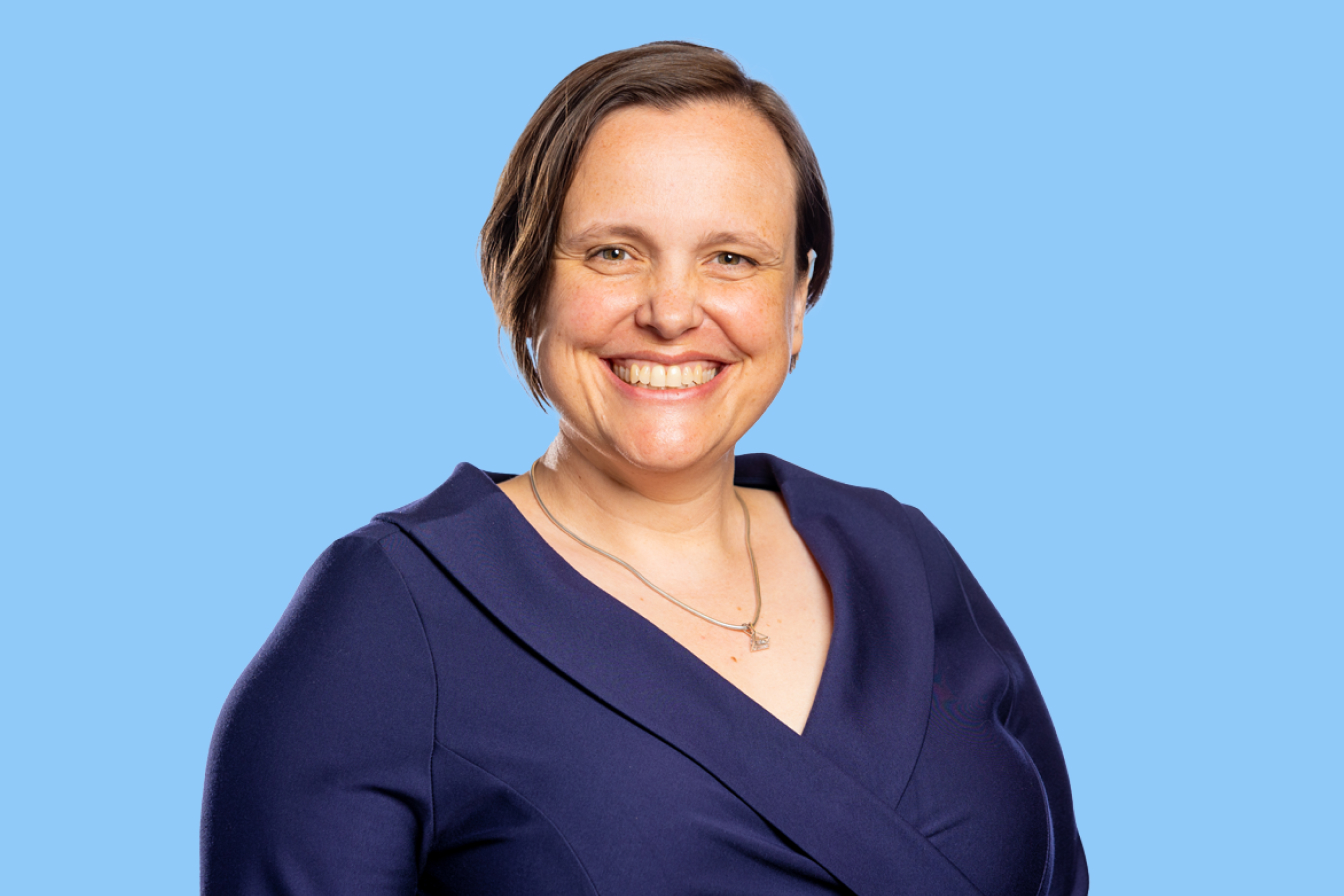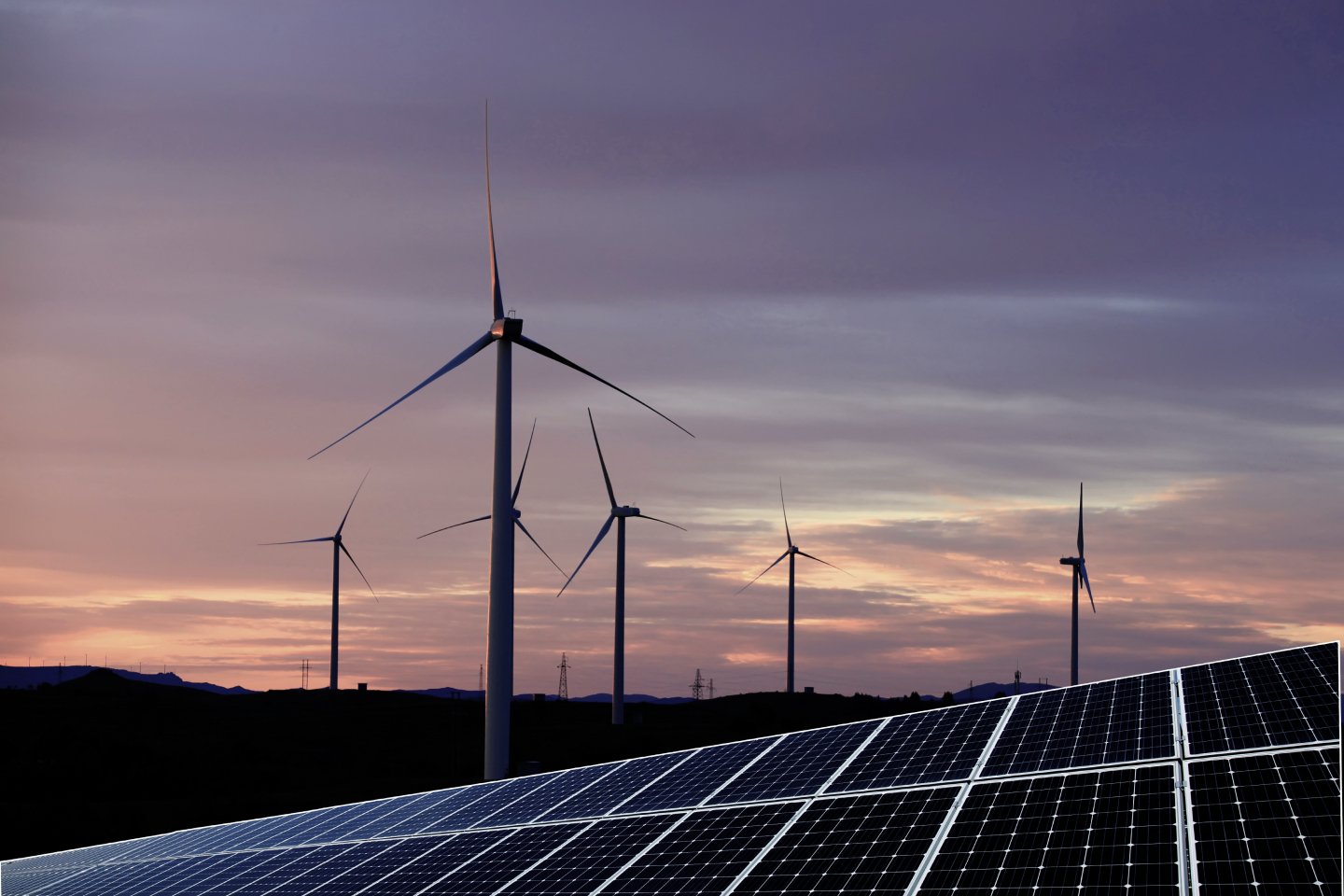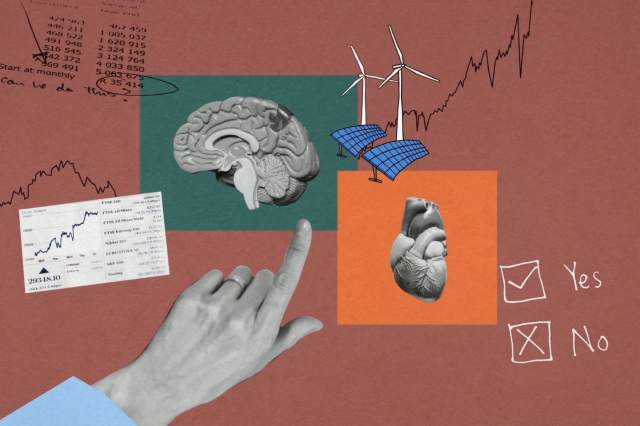Q&A with Alison George
What does 'ethical' mean to Australian Ethical?
Australian Ethical was founded around a clear and transparent set of principles for people, planet and animals. Our Ethical Charter sets out 12 positive things that we want to see more of in the world – such as protecting human rights, eco-systems, and animal welfare – and 11 harms we want to see reduced – such as weapons manufacture and poor working conditions.
We consider these ethical priorities in everything we do – in our investment activities, and in the way we operate our business and treat our people.
Our in-house ethics team looks in depth at what businesses do (their activities) as well as how they do business (operations), and all their activities along the value chain.
Every investment Australian Ethical makes has gone through this comprehensive and detailed evaluation to make it into our investible universe. When we enter into arrangements with other specialist investment managers, we make sure their process for selecting companies to invest in meets our own high standards.

Australian Ethical's Head of Ethics and Impact, Alison George
It’s no surprise we find ourselves at the forefront of the energy transition, the great mega-trend of our time, reshaping our societies and financial markets.
Does your ethical process make your portfolios look different?
Relative to the Benchmark1, our listed share portfolios have multiple times the level of investment in sustainable solutions like healthcare, water supply and pollution prevention, and far less exposure to unsustainable consumption and extractive industries.
Our listed share portfolios have more than four times the investment in renewables and energy solutions compared to the Benchmark and less than a quarter of the emissions.2
This future-focused philosophy permeates across the wide range of ethical investment options in our portfolios – from fixed income to multi-asset, systematic and active equity capability as well as private markets.
Does choosing an ethical manager mean you need to forgo investment returns?
Not in our view, and our investment performance is evidence of this. We have what’s called a dual purpose – to invest ethically, as guided by our Ethical Charter, as well as to optimise investment returns. This is possible, not only because we believe we can make a difference to the planet, but also because we think it’s a compelling investment case.
We have a high degree of conviction in critical issues such as climate change, housing affordability, diversity and equity considerations. In my view these aren’t cyclical trends but will continue to grow in importance over the years to come.
So, it’s no surprise we find ourselves at the forefront of the energy transition, the great mega-trend of our time, reshaping our societies and financial markets.
We are using our capital and our influence to invest in new technologies and accelerate a move away from the emissions-intensive energy sources the world has relied on in the past.

Every investment Australian Ethical makes has passed this comprehensive and detailed evaluation to make it into our investible universe.
How does your ethical process differentiate you from other investment managers?
These days every investment manager wants to say that they consider environmental and social issues.
What they are less upfront about is, that this consideration is limited to whether it helps them make a profit.
If an environmental or social issue can hurt the bottom line of an investment, they may adjust their valuation to account for it. But that's where ESG stops. It’s enlightened self-interest at best.
Australian Ethical is a values-based investor. We take environmental and social issues into account in every case. Our approach includes absolutes, like not investing in weapons manufacture or tobacco production. For investments that get past this first hurdle, the question becomes, "is there a net positive for people, planet and animals in this activity?"
How do you make a difference, beyond how you allocate capital?
Allocating our capital in a way that is aligned with our Ethical Charter is important, it’s critical, but it’s a minimum requirement and not an end point – we don’t stop there.
By achieving strong ethical and financial performance, we hope to be trusted by more customers, and also emulated by more peers.
We want ethical investing to grow to the point where environmental and social performance matters as much as financial performance does; where each business is valued based, not only on its financial contribution to shareholders, but for its environmental and social contribution to all stakeholders – customers and host communities, employees, and staff all along the supply chain, non-human animals, and ecosystems both impacted and relied upon.
We recognise that as investors, we are relatively more empowered than most of those stakeholders, we can open doors that are closed to them. So, we use our position as investors to seek positive change on their behalf, to hold companies to account for their ethical performance and to agitate for better. This means being vocal at times.

Transparency is fundamental, but it still leaves the work of evaluation to do.
What are some recent examples of how you've been vocal?
You can see this in our recent engagement with Boral, a building materials company. We spoke to the company in private, but we were also public about our concerns in our open letter and in the media.
We had invested in Boral based on the company setting strong carbon targets. But when Boral went back on these commitments, we had to speak out about our concerns not just for the planet, but for the company.
It's easy to give in to short term pressures, it’s easy to focus on this year’s executive KPI at the expense of building a business that can succeed in the long term. That is why companies need to hear from their investors that they want them to stay the course of sustainable value creation. As in many other cases, with Boral we rallied other investors to join us and amplify our calls for better.
We want ethical investing to grow to the point where environmental and social performance matters as much as financial performance does.
Aren’t you worried that collaborating with other asset managers will erode your unique position on these issues?
We care about the outcome, and ultimately, we think customers will recognise those that consistently lead. We collaborate wherever we can find common ground.
Last year we directly and pro-actively pursued more than 65 engagements for change. When you add in collaboration, that number grows to more than 250.
A lot of asset managers publish engagement statistics, is this a good way to judge the authenticity of an ethical fund in your view?
Activity numbers relating to engagement activity aren’t enough to know we are making a difference. We go further to hold ourselves to account and pursue the real-world change at the heart of our mission.
But pursuing real change can take time – most engagements run for multiple years. So we publish our plans for engagement, our ultimate objectives, and the activities we intend to undertake to get there. We then annually report back on what we did and what progress we saw – and we do see progress year on year.
Around a quarter of our proactive engagements saw some positive change in the most recent year. If we don’t see change, we are honest about that too and what we are changing to do better in the future.
Do you have any recent examples of these engagements and the progress you’ve made?
Our banking engagement is an example of this. We restrict+ our investment in fossil fuel companies because we don’t see them having a role in the net zero future. While the ones we choose to avoid are out of our portfolios, the problem still remains.
We know that new dirty energy projects can’t be developed if we are to avoid dangerous climate change. We also know those projects won’t be developed if no one will lend to them. Our goal is to see the banks withdraw lending from fossil fuels that are misaligned with global climate goals.
Over the last few years, the climate proposals we helped put on bank AGM agendas had received dwindling investor support. So, we stopped and reviewed. We spoke to as many of those investors as we could, teased out their concerns and found common ground.
As a result, we were able to author proposals that furthered our objectives while also being palatable to our peers and the change was dramatic for the two banks we were active on. There was four-times the level of support for our asks of NAB over the prior year3. We also doubled investor support for our calls for Westpac to apply its climate standards more broadly.
Holding ourselves to account not just for activity, but for outcomes is key to our achievement of influence.

We restrict our investment in fossil fuel companies because we don’t see them having a role in the net zero future.
We’re living in the time of the ‘conscious consumer’, during a boom of ethical investing. What do you believe consumers expect from businesses and for-purpose organisations in 2024?
I think consumers want to know who they can trust. Transparency is fundamental, but it still leaves the work of evaluation to do. Each of us has a limited capacity to put into scrutinising the claims of others. It's exhausting to live in the modern world and try to be an ethical person too.
This is where certifications like B Corp are helpful.
To be a certified B (benefit for all) corporation, you must meet high standards of social & environmental performance, transparency & accountability, and be a force for change towards a more sustainable future for the environment and people. Because it is a rigorous, comprehensive standard for sustainable business, once you understand what that certification means you can trust it in all the places that you see it.
As well as being certified ourselves we consider B Corp status in our supplier relationships. Australian Ethical was the first listed B Corp in Australia in 2014 and is currently the highest scoring B-corp in Australia & New Zealand.
+ Our investment restrictions include some thresholds. Thresholds may be in the form of an amount of revenue that a business derives from a particular activity, but there are other tolerance thresholds we can use depending on the nature of the investment. We apply a range of qualitative and quantitative analysis to the way we apply thresholds. For example, we may make an investment where we assess that the positive aspects of the investment outweigh its negative aspects. For information on how we make these assessments for a range of investment sectors and issues such as fossil fuels, nuclear power, gambling, tobacco, human rights, and many others, please read our Ethical Guide.
1 Compared to a blended sharemarket Benchmark of S&P ASX200 Index (for Australian and NZ shareholdings) and MSCI World ex Australia Index (for international shareholdings). Based on shareholdings at 30 June 2023 and analysis tools provided by external sources which cover 92% of the listed companies we hold shares in by value. See page 5 of our latest Sustainability Report for more detail.
2 Based on the revenue from sustainable impact solutions earned by listed companies whose shares we invest in across our funds and options, and the proportion of those listed share investments in renewables and energy solutions. This should not be considered representative of individual funds or options which will have their own mix of share and other investments. For our analysis we use sustainable impact criteria and revenue data from external sources which aim to measure revenue exposure to sustainable impact solutions and support actionable thematic allocations in line with the U.N. Sustainable Development Goals (SDGs), EU Taxonomy of Sustainable Activities, and other sustainability related frameworks. See page 5 of our latest Sustainability Report for more detail.
3 https://www.australianethical.com.au/blog/how-we-are-challenging-banks-on-their-lending/



